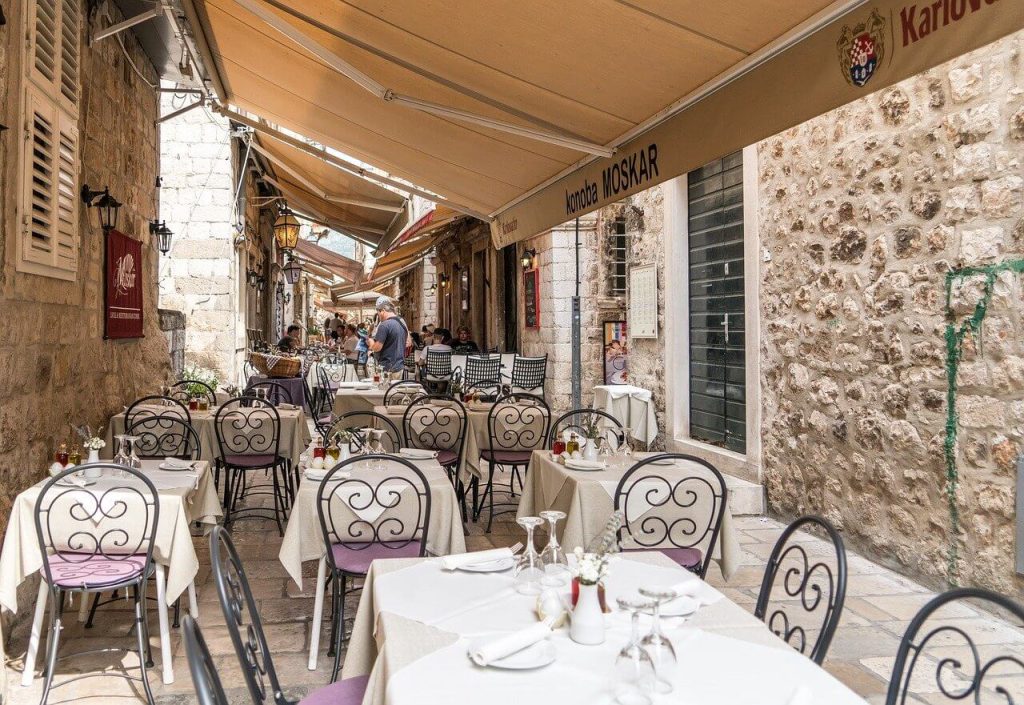Hotel houses and caterers in Dubrovnik are looking to fill the missing workforce ahead of the 2022 tourist season, reports Slobodna Dalmacija.
The labor market is flooded with tenders, workers are wanted outside Croatia, and no one wants to repeat last year’s mistake when employment was delayed due to fear of closing the emitting markets. As a result, some seasonal workers have gone abroad, and some have been recruited in the northern Adriatic. But what are the salaries attracting labor?
According to the Central Bureau of Statistics, the average salary in Croatia in November 2021 was HRK 7,333. However, the median net income was HRK 6,149, which means that half of the employees had a lower and half a higher income than that amount. Income in the so-called “real sector” in tourism has always been lower than the national average.
“The lowest salaries in tourism are paid to cleaners and kitchen support staff, around HRK 5,000 net per month. The average salary of a waiter in a Dubrovnik hotel is between HRK 6,000 and 7,500,” says Dolores Lujić, commissioner of the Croatian Tourism and Hospitality Union. There is no data for restaurants, but given the high demand for waiters, she is convinced they are not lower. Receptionists are in the rank of waiters.
“Coefficients are generally not applied to them. So, for example, cooks and chefs in a top restaurant in Dubrovnik receive HRK 12 thousand or from HRK 15 thousand to 20 thousand,” says Lujić.
According to the Croatian Employment Service advertisements, the most sought-after occupations are chefs and waiters. In Dubrovnik-Neretva County, 67 ads were opened for chefs and 52 for waiters in the entire area. Julijo Srgota, head of the Regional Office of the Croatian Employment Service (CES) in Dubrovnik, says that employers do not rest; advertisements arrive daily from the beginning of the year.
According to the Law on Foreigners, for some jobs, employers must obtain a positive opinion from the CES and the so-called “labor market test”, and only then submit an application to the Ministry of the Interior for a residence and work permit for a foreign worker. On the other hand, the tourism sector can obtain work permits for workers from third countries without a labor market test, but only for up to 90 days during a calendar year.
In 2021, the CES office in Dubrovnik received 1,887 applications for employment of third-country nationals. In Dubrovnik-Neretva County, the CES issued 286 positive opinions last year, 10 are being processed, and 1,070 work permits have been issued. On the other hand, the institute refused 71 and suspended 361 work permits. The most significant number of requests related to jobs in construction and catering and tourism, such as building worker, cook, waiter, assistant chef, carpenter, bricklayer, valet, reinforcement worker, civil engineer, and facade worker. Since employers are obliged to enclose income data in their request for the opinion of the CES when hiring foreigners, it turns out that the average salary of a worker who came here from third countries to work as a chef is HRK 5506.9, waiter HRK 5462.6, and baker HRK 4631.8, while employers reported an average salary of HRK 4876 for a maid or HRK 4461 gross for a cleaner.
The average salary of employees in the Dubrovnik Tourist Board in 2019 was HRK 7,724 net.
The County Chamber of Commerce performed a salary analysis in Dubrovnik-Neretva County companies for 2020. According to their data, the average salary in the provision of accommodation and food preparation services is HRK 4971 net, in trade HRK 4743, in transport HRK 6276, and in administrative and support service activities (90% being travel agencies) HRK 5166.
Compared to 2019, the most significant decline in monthly wages was recorded in accommodation services in tourism and food preparation (22 percent), and the smallest in transport, while in construction it increased by five percent and averaged HRK 4552.
“The highest average monthly net salary was paid in the supply of electricity, gas, steam, and air conditioning, HRK 6,811. Paradoxically, the lowest average wage in the county is in the field of education, HRK 3,890.
This applies to private institutions and companies, not schools financed from the budget, but it says how we treat this activity. The data are exact, based on the data presented by entrepreneurs in their final financial reports to Fina,” says Nikolina Trojić, President of the Chamber.
Commenting that the average income in the Dubrovnik area is lower than the state, Trojić noted that the coronavirus hit a large part of businesses much harder and that many employees depended on government support for job preservation (HRK 4,000).
Through the Dubrovnik Student Center, the student population, in most cases, works in tourism and catering. In 2021, 6878 contracts were signed through the student service. For comparison, in 2020, 4097 contracts were signed through student services, and in 2019, 10,364 contracts.
“Most often, hourly rates for students last year were between 30 and 35 kuna, and the most sought after jobs were waiters, support staff in catering, cleaners, maids, and other hotel housework,” says Marko Potrebica, director of the Student Center Dubrovnik.
For more, check out our business section.









